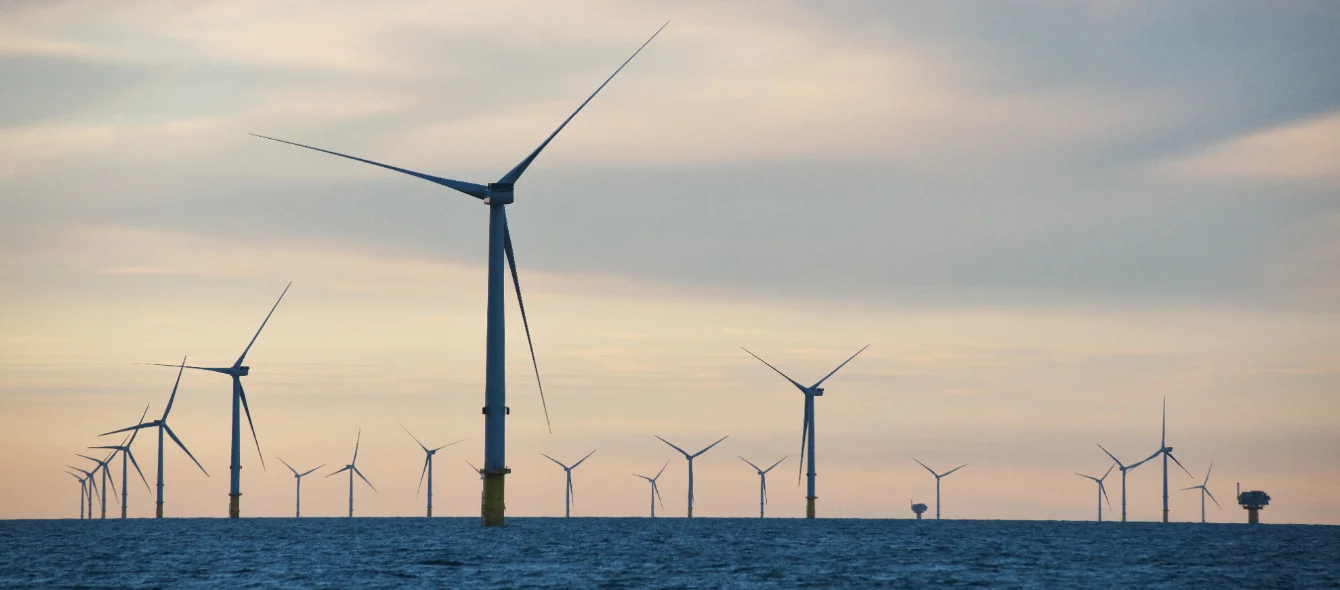Following on from UK Prime Minister Boris Johnson’s 10-point plan and an Energy White Paper last year, the UK government published its Net Zero Strategy: Build Back Greener on the cusp of the COP26 conference held at the beginning of November.
The long-awaited strategy outlines a pathway to achieving the ambitious interim target of reducing carbon emissions by 78% by 2030 from 1990 levels and, from there, net zero carbon emissions by 2050. If these goals can be realised, it would put the UK at the forefront of the fight against climate change.
Power sector decarbonisation remains central to the achievement of the country’s climate change plans, but the strategy is clear that meeting longer-term targets requires a much broader emissions reduction effort across the whole economy. The strategy proposes policies that will affect all sectors, from power to heating, buildings, industry and transportation.
Sectoral plans
A core aim is to fully decarbonise the power sector by 2035, subject to security of supply considerations. The principal elements of this plan are:
- 40 GW of offshore wind by 2030, alongside more renewable energy capacity, such as wind and solar onshore. This will include a move toward 1 GW of floating offshore wind by 2030.
- New measures regarding the flexibility of electricity supply, including storage.
- Securing a final investment decision on a second new large-scale nuclear plant by the end of this parliament. The government will also fund research into future nuclear technologies.
However, the government says there will also be a need for clean fuels, in addition to clean electricity. It is targeting 5 GW of hydrogen capacity by 2030 and a halving of emissions from the country’s traditional oil and gas sector.
Carbon Capture and Storage (CCS) lies at the heart of the government’s industrial decarbonisation plans, focussed initially on the Hynet and East Coast Clusters, with the aim of capturing 20-30 million tons of carbon dioxide a year by 2030. In addition, the UK Emissions Trading Scheme will be used to incentivise cost-effective carbon abatement in industry.
For buildings — major consumers of energy for heating and cooling — the ambition is that after 2035, all new heating appliances installed in homes and workplaces will be low carbon. The government wants to reduce electricity bills to make electricity an attractive heating option versus natural gas, but will not take a decision on hydrogen in heating until 2026.
In transport, the government will focus on electrification, mandating an end to new sales of gasoline and diesel cars and vans from 2030. All cars must be zero emissions capable by 2035, according to the strategy, and car manufacturers will be set targets for zero emissions sales from 2024. The government will also move towards ending the sale of other non-zero emissions vehicles, such as motorcycles and heavy goods vehicles, by 2040, subject to consultation.
There is a recognition that not all emissions will be fully abated by 2050. The government therefore aims to increase the UK’s carbon sinks and encourage new technologies which directly capture carbon from the atmosphere, known as Greenhouse Gas Removals. The aim is to treble England’s woodland area and increase tree planting rates to 30,000 hectares a year in addition to restoring traditional peatlands. Scotland, Wales and Northern Ireland set their own targets in this area.
The Net Zero Strategy is a genuine step forward. The UK was the first major industrialised nation to set Net Zero into law – now we have policy plans to get us there." Lord Deben, CCC Chairman
Strategy reactions
The Net Zero Strategy has been broadly welcomed as an overarching policy document setting out key policies for the achievement of net zero carbon by 2050. The ‘whole system’ approach has also been received positively.
However, some observers point out that it does not fill all of the policy gaps needed to deliver on the governments pledges. Katie White, from the environmental group World Wildlife Fund, said “we are still lacking the full suite of policies and increased funding to close the gap between climate promises and action.”
The government has announced a series of funding measures, but concerns remain about whether the policy framework provides enough certainty for investors, particularly in new technological areas such as hydrogen and CCS.
Independent review
The UK’s Climate Change Committee (CCC), an independent body established under the Climate Change Act of 2008, carried out a full review of the government’s Net Zero Strategy.
CCC Chairman Lord Deben said “The Net Zero Strategy is a genuine step forward. The UK was the first major industrialised nation to set Net Zero into law – now we have policy plans to get us there.”
Photo Credit: © RWE AG
